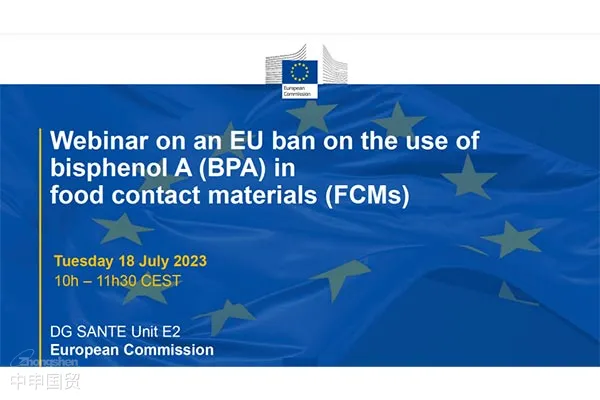- Shanghai Zhongshen International Trading Co., Ltd. – Your reliable partner with 20 years of import/export agency service expertise.
Understand the EU's ban on BPA in food contact materials, effective Spring 2024. Learn about EFSA's new TDI and what manufacturers need to do.

I. Basis for the EU Ban on Bisphenol A
In a safety assessment report released on April 23, 2023, the European Food Safety Authority (EFSA) set the tolerable daily intake (TDI) of BPA at 0.2 ng/kg body weight/day based on the latest scientific data.
Due to the new TDI setting, the specific migration limit (SML) of 0.05 mg/kg for BPA under EU Food Contact Plastic Regulation 10/2011 will no longer apply.
Therefore, DG Sante has decided to prohibit the intentional addition of BPA in all food contact materials, including plastic monomers, coatings and varnishes, inks, adhesives, and rubber.
II. Cases of Non-Intentional Addition
DGSante listed several scenarios that fall under non-intentional addition, including contamination from raw material streams, introduction via "vapor phase transfer" from other materials, environmental pollution, and other unknown sources.
III. Enterprise Countermeasures
DG Sante recommends that food contact material manufacturers plan ahead to replace BPA-synthesized polycarbonate or polysulfone, such as using PET, HDPE, PP, and other materials.
For coatings and varnishes, the ban on BPA may affect product shelf life, increasing costs and energy consumption.
IV. Implementation Date and Transition Period
The ban is expected to take effect in the spring of 2024, with an 18-month transition period, meaning food contact materials containing BPA will be prohibited from entering the EU market by late 2025 to early 2026.
The industry can apply for an extension of the phase-out period by September 15, 2023.
V. Restrictions on Bisphenol A in Other Countries/Regions
China allows the use of BPA in plastic resins, coatings and varnishes and their additives, as well as adhesive additives, with an SML of 0.6 mg/kg, and prohibits its use in the production of food contact materials and products specifically for infants and young children.
The U.S. Food and Drug Administration (FDA) has not set limits on the addition of BPA in food contact materials but prohibits its use in infant food contact materials. In 2022, the FDA began re-evaluating the safety of BPA in food contact materials.
? 2025. All Rights Reserved.










